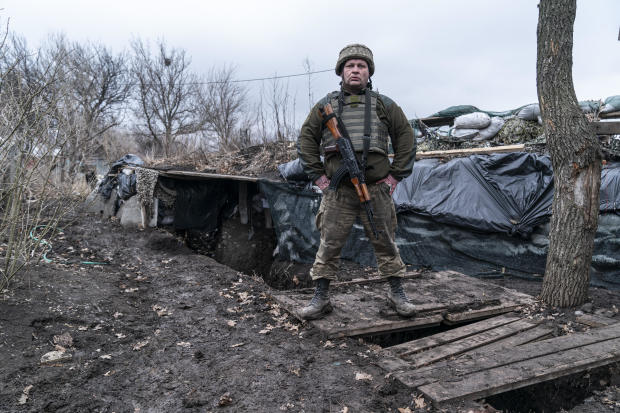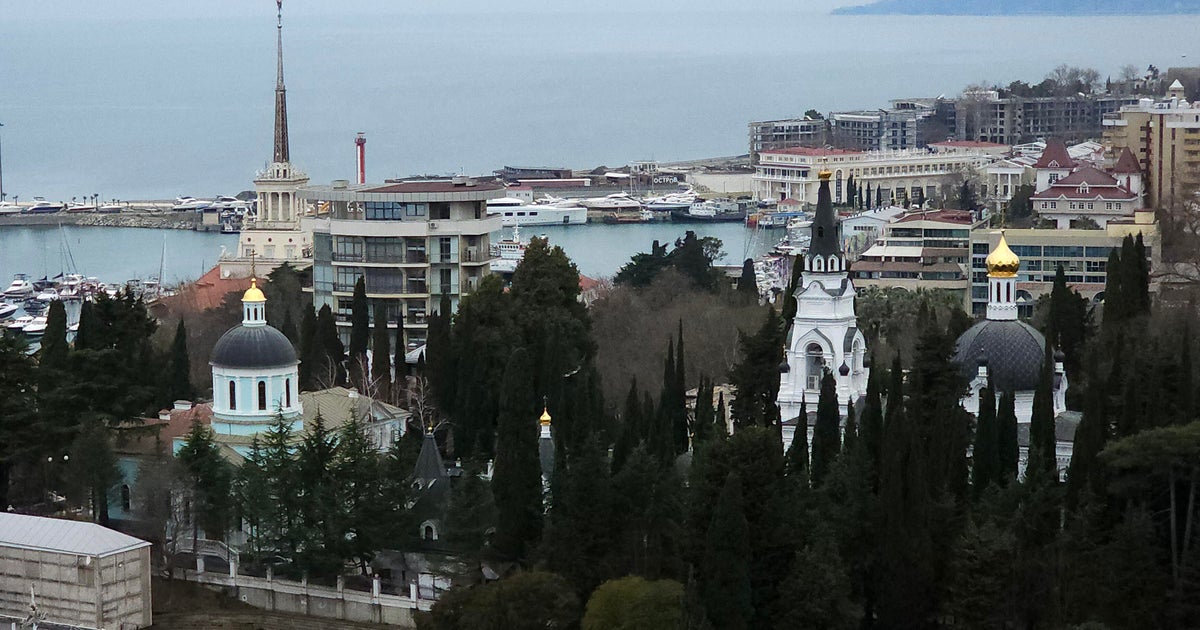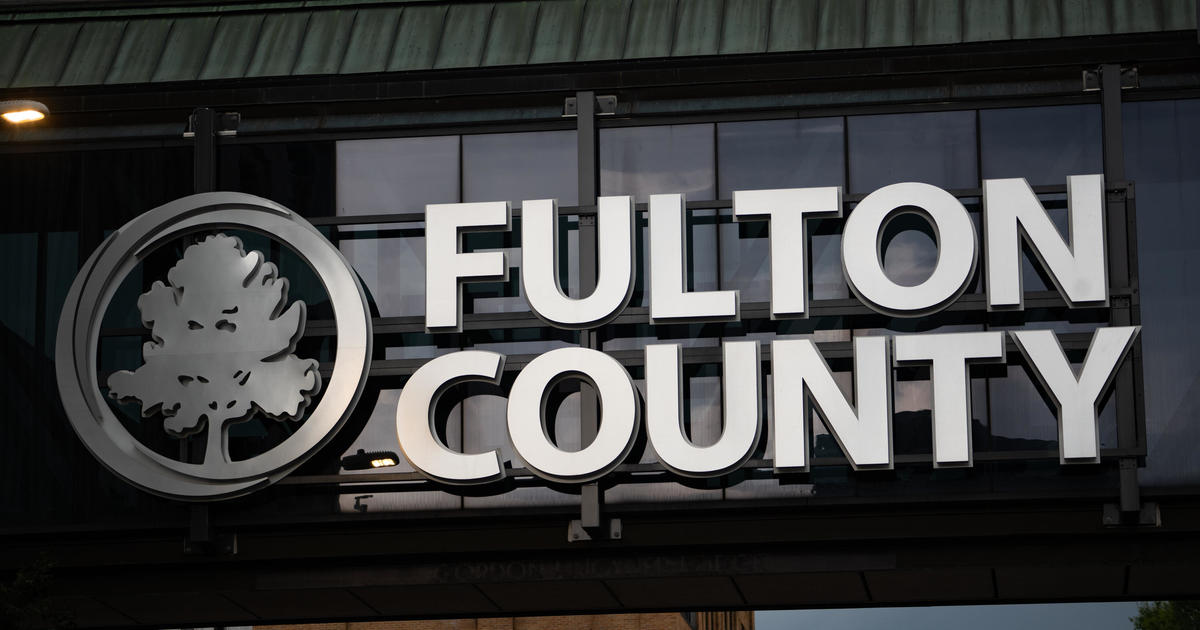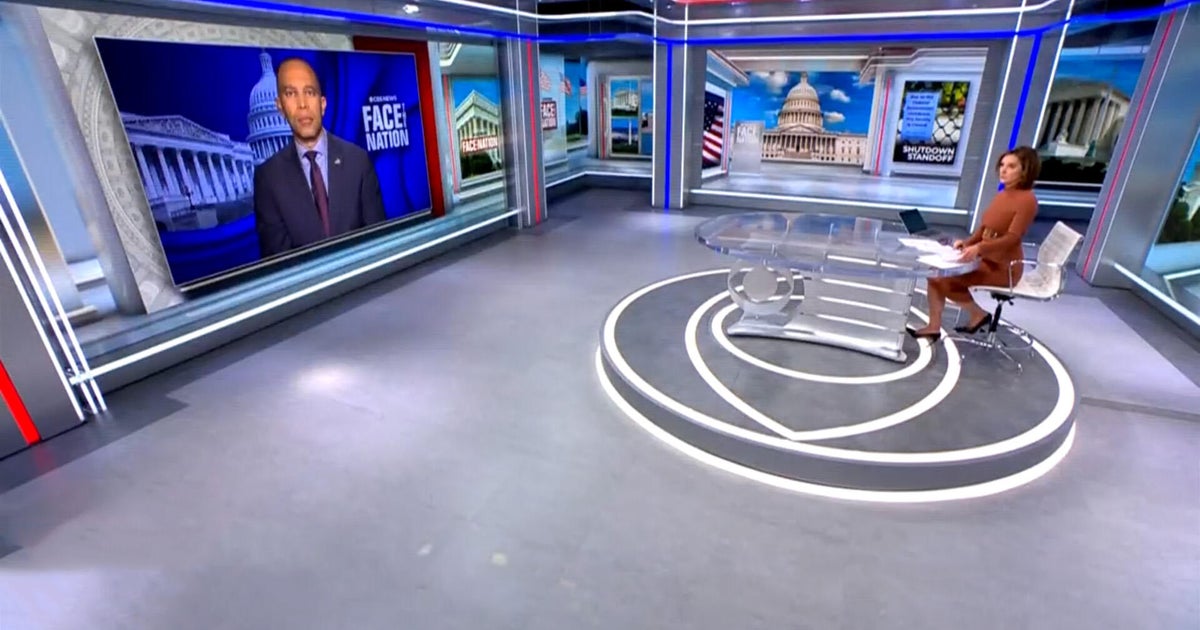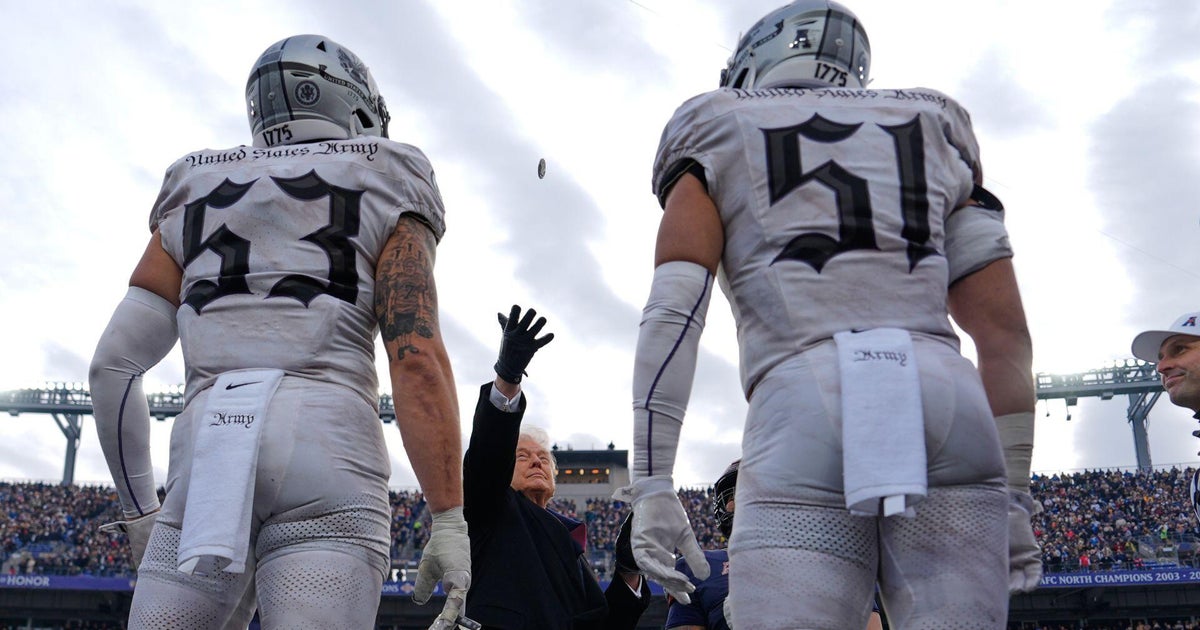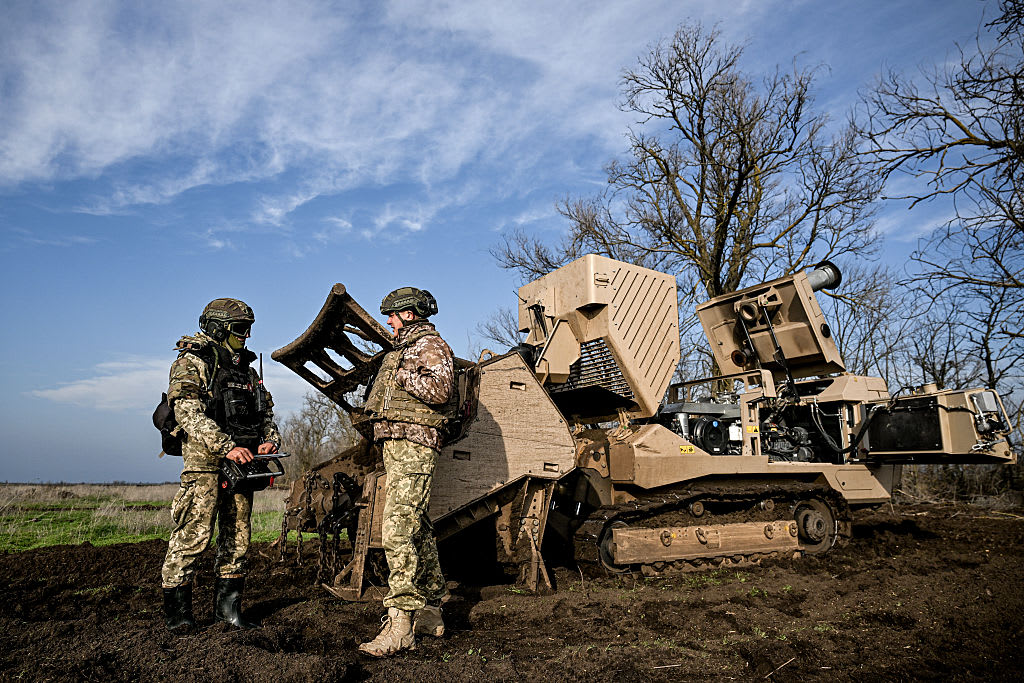Biden calls Ukraine's leader, pledges "unwavering support" in the face of Russian "aggression"
Moscow — President Joe Biden spoke for the first time on Friday with his Ukrainian counterpart as tension mounted between the American ally and its neighbor, Russia. The White House said Mr. Biden had confirmed to President Volodymir Zelenskyy "the United States' unwavering support for Ukraine's sovereignty and territorial integrity in the face of Russia's ongoing aggression."
Zelenskyy said in a tweet that he was "glad to talk to" Mr. Biden, and that he appreciated the "U.S. support on different levels. We stand shoulder to shoulder when it comes to preservation of our democracies."
Moscow and Ukraine have exchanged hostile remarks this week as a buildup of Russian troops and military hardware near the countries' shared border stokes fears of a fresh wave of violence. A military conflict between Russian-backed separatists and Ukraine's NATO-backed army has ground on in the east of Ukraine for seven years.
Ukrainian Defense Minister Andrii Taran has spoken twice recently with U.S. Secretary of Defense Lloyd Austin, most recently on Thursday, about the escalation of violence in the east of Ukraine. According to a readout issued by Ukraine's military, Austin promised his counterpart that, "in the event of escalation of Russian aggression, the United States will not leave Ukraine alone."
The Kremlin reacted on Friday by saying that any deployment of U.S. or NATO troops to Ukraine would force Moscow to take unspecified "extra measures" to ensure its own security. Spokesman Dmitry Peskov told reporters that the situation along the so-called line of contact in eastern Ukraine, which separates the Ukrainian government forces and the Russian-backed separatists, was "quite frightening."
Moscow has repeatedly blamed the current escalation on Ukrainian "provocations" in the region.
When asked about the reported build-up of troops near the Ukrainian border and the Russian annexed Crimean Peninsula on Thursday, Peskov said that Russia moves its military forces within its own territory however it chooses, and "takes measures to ensure the security of its borders."
He reiterated Russia's longstanding denials of any military involvement in the conflict in eastern Ukraine, which reached a crescendo in 2014 when President Vladimir Putin unilaterally annexed Crimea away from Ukraine, drawing condemnation and sanctions from the U.S. and Europe which remain in place today.
A U.S. military official initially called the buildup of Russian forces near the Ukrainian border "concerning" this week, but later told CBS News national defense correspondent David Martin that it did appear to be a training exercise, albeit not exactly fitting the description of the wargames announced last month by the Russian Ministry of Defense.
NATO officials also voiced concern over the sizable Russian military buildup near the border this week.
Tension is mounting
Relations between Kyiv and Moscow have worsened since Putin backed the separatists in eastern Ukraine — support his government insists is only political and humanitarian — and seized control of Crimea in 2014.
The military conflict between the pro-Russian rebels and Kyiv has continued simmering for seven years, claiming at least 14,000 lives since it began.
In the first major flare-up in months, Ukraine said four of its soldiers were killed and two were injured a week ago by shelling in the country's east. The separatists denied responsible for the deaths. The OSCE's civilian Special Monitoring Mission to Ukraine has reported hundreds of cease-fire violations in recent days.
During a video conference call on Tuesday with French President Emmanuel Macron and German Chancellor Angela Merkel, Russia's Putin "expressed serious concern about the escalation of armed confrontation," according to the Kremlin.
He placed the blame squarely on Kyiv.
Prelude to war, or saber rattling?
Some analysts believe the simmering conflict was always going to ramp back up again at some point, given the lack of progress toward any peaceful, political resolution and the significant presence of weaponry and armed forces in the region. But most believe it's too soon to say how the current flareup will play out.
Katharine Quinn-Judge, a senior analyst with the International Crisis Group, told CBS News that while ceasefire provisions laid out in July 2020 do seem to have ushered a considerable reduction in violence, that ceasefire was always destined to fray.
"This doesn't necessarily mean there will be a major escalation. Neither side wants to bear the political or economic costs this would bring," she said in comments emailed to CBS News from Kyiv. "But these occasional spikes in violence... play to the interests of hardliners on all sides: They're a handy reminder that the enemy can never be trusted and that reconciliation under current circumstances is impossible."
The Minsk accords, reached during 2015 talks in neighboring Belarus, brought an end to the worst of the hostilities, but peace talks have been stalled for years, with Russia and Ukraine failing to find any common ground on which to build.
Konstantin Skorkin, a contributor to the Moscow Carnegie Center, says Russia hasn't been able to get any of the concessions from Kyiv that it had hoped for when Zelenskyy came to power in 2019.
Now, with the new Biden administration in Washington, Zelensky appears ever more confident that he'll have U.S. backing in his standoff with Russia.
Skorkin told CBS News in a telephone interview that, in the circumstances, both sides may be deliberately inflaming the situation to "raise stakes in the negotiations."
"Russia demonstrates its might, while Ukraine demonstrates that it is not afraid of Russia," he said.
But Skorkin warned that in such a tense atmosphere, with the heavy military presence, any incident could trigger an actual escalation of the armed fighting — regardless of whether either side really wants one.
CBSNews.com's Tucker Reals contributed to this report.
